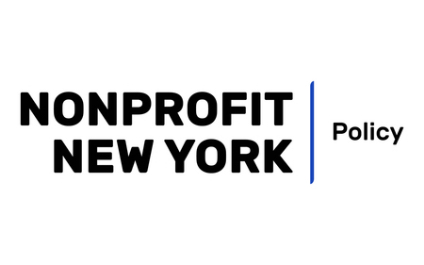National
.ORG Registry
Prices for nonprofit website addresses ending in .org may soon increase dramatically and censorship may become a distinct possibility because of two seemingly connected events. Earlier this year, the governing body overseeing the .org domain, the Internet Corporation for Assigned Names and Numbers (ICANN), removed price caps despite 97 percent of the more than 3,200 submitted comments expressing opposition.Then, last month, the nonprofit Internet Society announced it had sold its ownership of the .org Public Interest Registry to a private equity firm, Ethos Capital. Groups sent a letter to the Internet Society in opposition to the sale. There is also a letter in opposition to the sale your organization can sign at SaveDotOrg.org. FMI, see this newsletter. There is also a recording of an NTEN call about the matter.
Clarifying Large Donations under Gift/Estate Tax Rules: The Treasury Department and the Internal Revenue Service issued final regulations confirming that individuals taking advantage of the increased gift and estate tax exclusion amounts in effect from 2018 to 2025 will not be adversely impacted after 2025 when the exclusion amount is scheduled to drop to pre-2018 levels. Treasury Decision 9884 include four examples which, among other things, illustrate the impact of inflation adjustments. According to the government, individuals planning to make large gifts between 2018 and 2025 can do so without concern that they will lose the tax benefit of the higher exclusion level once it decreases after 2025.
Private Foundation Excise Tax: The complicated foundation excise tax would be streamlined in bipartisan legislation proposed by Representatives Danny Davis (D-IL) and George Holding (R-NC). The Private Foundation Excise Tax Simplification Act (H.R. 4953) would simplify the current two-tier private foundation excise tax by replacing it with a revenue-neutral rate of 1.39 percent. The Council on Foundations and other foundation-serving organizations sent a letter to House leaders endorsing the bill.
IRS recommendation to renew Preparer Tax Identification Numbers (PTINs). All Current PTINs Expire December 31, 2019 and the IRS is urging tax professionals to renew their Preparer Tax Identification Numbers now to avoid a last-minute rush.
Income taxes for states where you do not have a physical presence. Sax LLP notified nonprofits that states are becoming more aggressive with requiring organizations to file income tax returns, even if they have no in-state physical presence (economic nexus). New York has a threshold of $1,000,000 or more for sales attributable to New York. This applies to C-corporations and S-corporations. For more information, view Sax LLP’s guidance.
Election year tips for nonprofit employees participating in the political process. In anticipation of the 2020 election year, Venable LLP has released important information nonprofits should take note of what they may be required to do or are prohibited from doing about their employees’ desire to participate in the electoral process.
State
Coop Occupancy Rule Changes A456/S4956 Signed by Governor 11/25/19. This law requires the boards of directors of residential cooperative corporations and not-for-profit corporations to provide tenants with changes to the by-laws in writing within ten days of adoption; and requires notification to tenants of changes affecting occupancy or the rules of the building.
State releases census funding. This month the Governor’s Office announced funding for census outreach for localities to reach hard to count communities.
State Guidance on Schedule B List of Contributors. Last month the Attorney General’s Charities Bureau released guidance on whether organizations that register with the Charities Bureau must submit a copy of the complete Schedule B (List of Contributors) to their Internal Revenue Service Form 990. This guidance confirms that there has been no change to the New York filing requirements for organizations that also file a federal Form 990: New York registrants must attach complete copies of all schedules to their federal form as part of their annual, New York CHAR500 filing, including (if applicable) a Schedule B that lists the names and addresses of the organization’s substantial contributors and the amounts they contributed.
City
City Prevailing Wage. On December 4th the Mayor signed Intro 1321, which extends to nonprofits and affordable housing developments the required payment of prevailing wages to building service employees in buildings where a private developer receives at least $1,000,000 in discretionary financial assistance from the City or a City economic development entity for a City economic development project. The bill exempts smaller residential projects, certain supportive housing projects, deeply affordable preservation projects, and certain NYCHA projects.
